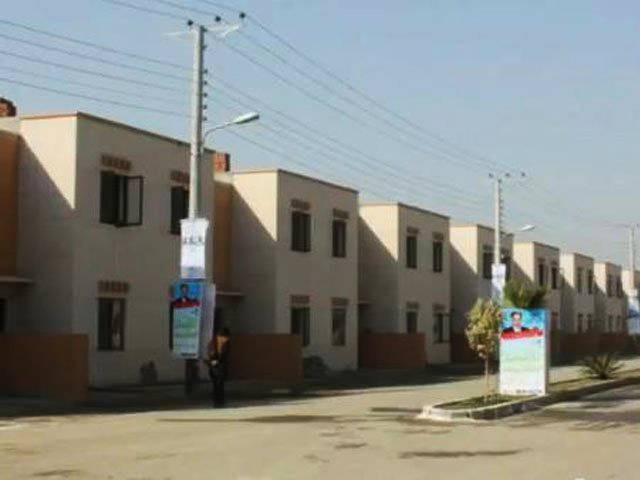Investing in low-cost housing to boost economy
Experts say construction sector creates jobs, supports other industries

PHOTO: ONLINE
The new study, Enhancing Builder Finance in Pakistan, was launched at an event on Wednesday.
With this study, Karandaaz Pakistan aims to show the wide benefits to Pakistan of building more affordable housing and also help boost the businesses of Small and Medium Enterprises (SMEs) that work on house building.
The study estimates that the construction of 100,000 more houses each year will lead to economic growth as well as increased employment opportunities.
FM Qureshi stresses on bolstering trade, economic relations with regional countries
According to the study, Pakistan's economy would benefit massively if affordable housing were to be increased. to achieve this, improvements should be made to the regulatory environment for builders and banks must be given sufficient incentives for mortgage and builder financing.
Head of DFID Pakistan, Joanna Reid said "Only the richest of companies can afford to build homes for the richest of people.
Pakistan needs financing mechanisms to ensure everyone can have a roof over their head.
"Speaking on the occasion, Karandaaz CEO Ali Sarfraz, said: "It is important for such discussions to be given a platform and for players within both the construction and the banking community to come together and engage in a conversation on how the challenges in access to finance, especially for small and medium sized builders and developers, can be resolved.”
He expressed hope that the study Karandaaz has conducted motivates members from the financial sector to take steps in making available financial products better suited to the needs and asset base of SME builders and developers and thereby catalyzing the availability of affordable housing for everyone in Pakistan.
The event was attended by representatives of the banking and building sectors, along with representatives from the government.
Prime Minister's Task Force on Housing Chairman Zaigham Mahmood Rizvi, also participated in the event and said: "According to the UN-Habitat, more than half of the humanity now live in cities, and by 2050 three out of four people will be living in urban areas.”
This massive urbanisation in most of the cities of Asia Pacific is creating challenges in major metropolitans like Mumbai, Calcutta, Karachi, Manila and Dhaka.
The urban areas, more so major metropolitan cities are facing housing shortages and generating urban slums, illegal habitats and indecent housing.
This is adding further to the already existing urban housing shortages in cities, nearly all of which represent economically weaker segments of society. The stakeholders of housing, namely developer, planners, the governments’, fiscal and regulatory agencies all are needed to be engaged to address affordable housing challenges, both from its supply-side and finance-side parameters.
Time to transform relations into economic ties: CM
The supply-side players, mainly the developers and builders need to be engaged for meeting this challenge of affordable housing.
In turn, this will boost the economy, and create jobs. Housing and real estate sector is directly linked to about 42 construction materials industries and creates jobs at much higher rate.
I reckon that with the government's focus and assistance from partners such as Karandaaz, the growth of SMEs in building and construction sector will bolster the positive impact at the macro level.
The state and the private sector should come forward to complement and support efforts of platforms like Karandaaz.
Published in The Express Tribune, December 6th, 2018.



















COMMENTS
Comments are moderated and generally will be posted if they are on-topic and not abusive.
For more information, please see our Comments FAQ